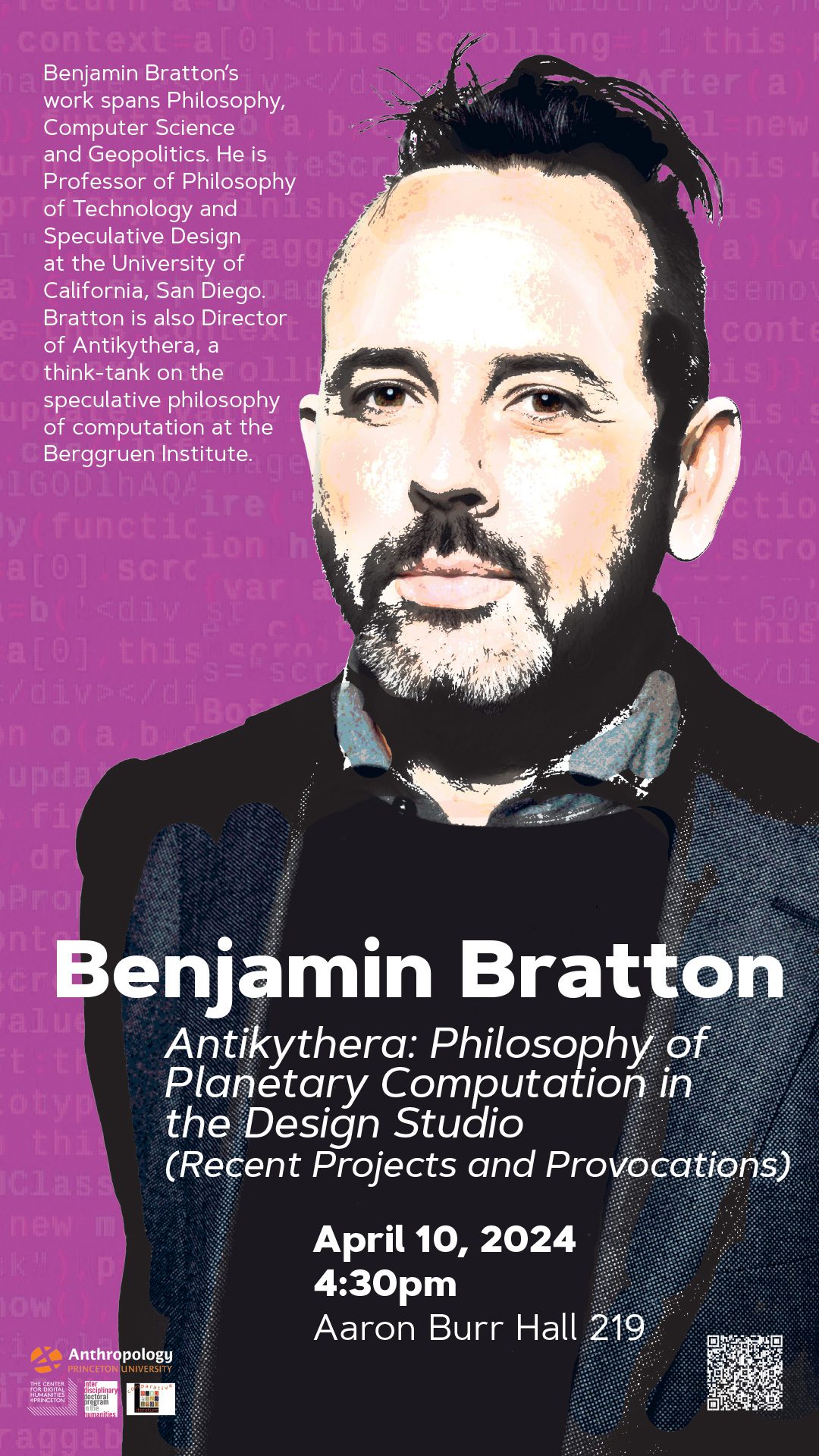
Antikythera: Philosophy of Planetary Computation in the Design Studio (Recent Projects and Provocations)
Benjamin Bratton Philosophy of Technology and Speculative Design University of California, San Diego and Director, Antikythera program
April 10, 2024 · 4:30 pm—6:00 pm · 219 Aaron Burr Hall
Digital Humanities, the Anthropology Department, the Comparative Literature Department, the Interdisciplinary Doctoral Program in the Humanities, Humanities Council and the Program in Italian Studies

As Stanisław Lem once put it, some technologies are instrumental, providing a means through which to change the world, but others are ultimately existential in significance, revealing aspects of reality previously unknowable and thus changing how intelligence knows the world and comprehends itself. Computation, both discovered and invented, is both instrumental and existential.
Antikythera is a think tank, design studio and publishing platform (with MIT Press) that seeks to reorient planetary computation as a philosophical, technological, and geopolitical force, by collaborating with scientists, philosophers, designers on a portfolio of research projects. In this talk, Bratton, will explore the theoretical provocations that underlie the program’s recent work and upcoming initiatives.
The program is structured around several core research themes. Planetary computation refers to the emergence of computation as global infrastructure and “accidental megastructure,” as described in Bratton’s The Stack: On Software and Sovereignty (MIT Press, 2016); computational simulations as “epistemological technologies,” multipolar computational geopolitics and what Bratton terms “hemispherical stacks;” synthetic intelligence and problems of anthropomorphism and AI alignment overfitting; and planetary sapience and how to locate the emergence of machine intelligence in the evolution of complex intelligence more broadly.
Bratton will also present work in progress from new collaborations with Astrophysicist and Assembly Theorist Sara Walker on the philosophical figure of planetary intelligence in contrast with posthumanist neo-dualisms, and with Google Research and Deep Mind on cognitive infrastructures, human-AI interaction design, generative multi-agent simulation, physicalized AI in evolutionary robotics, and structures of “fractal intelligence.”
***
Benjamin Bratton’s work spans Philosophy, Computer Science and Geopolitics. He is Professor of Philosophy of Technology and Speculative Design at the University of California, San Diego. Bratton is also Director of Antikythera, a think-tank on the speculative philosophy of computation at the Berggruen Institute.
***
This event is co-sponsored by the Center for Digital Humanities, the Anthropology Department, the Comparative Literature Department, the Interdisciplinary Doctoral Program in the Humanities, the Humanities Council and the Program in Italian Studies.












